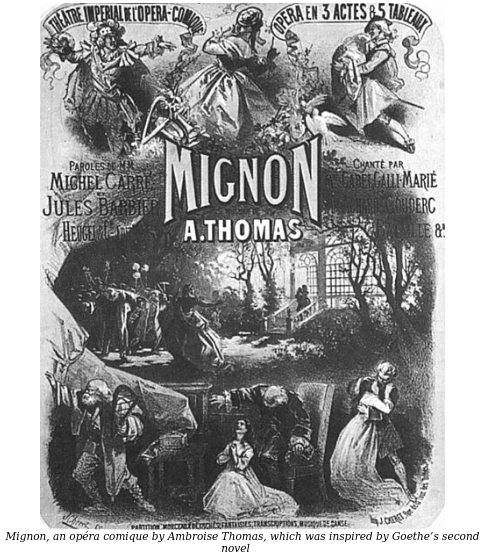Views: 46
Wilhelm Meister’s Apprenticeship by Goethe
I’m in a precarious situation here. I’ve reached a go-no-go point in this book. The Mignon reveal is going to be sweet nectar, milk chocolate, and honey.
I don’t know what’s going to happen.
She’s just a child, she dances, sings, and dresses like a boy. She’s part of the acting troupe Wilhem has fallen in with.
Extremely tempted to search her likeness but know it will be a confused mess of terrible images.
I prefer my pious picture to image search techno-grid conjuration.
Here is Mignon introduced in text:
“What is thy name?” he asked. “They call me Mignon.” — “How old art thou?” — “No one has counted.” — “Who was thy father?” — “The Great Devil is dead.”
What are we to do with a character like Mignon?
Will she blossom into a lotus flower and turn the world on its head?
Is this book even appropriate?
I’m pretty sure this Goethe book is okay, but I’ll let you know.
The French word “mignon” translates to English as “cute,” “sweet,” or “adorable.” It is often used to describe something or someone that is charming, attractive, or endearing. Here are some examples of its usage:
- Cute: Used to describe a person or object that is charming or attractive.
- Sweet: Can refer to something that is pleasant or endearing.
- Adorable: Describes someone or something that is very attractive or charming.
Wilhelm Meister’s Apprenticeship by Goethe
Mignon – A Character Reveal – Book Review
